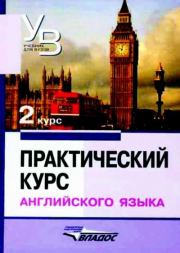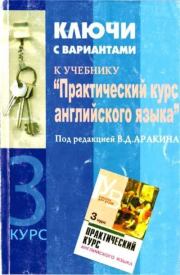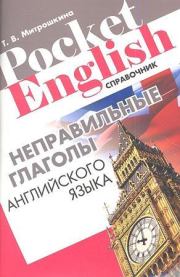В Д Аракин - Практический курс английского языка. 2 курс
 | Название: | Практический курс английского языка. 2 курс |
Автор: | В Д Аракин | |
Жанр: | Иностранные языки, Учебники и пособия ВУЗов | |
Изадано в серии: | неизвестно | |
Издательство: | неизвестно | |
Год издания: | - | |
ISBN: | неизвестно | |
Отзывы: | Комментировать | |
Рейтинг: | ||
Поделись книгой с друзьями! Помощь сайту: донат на оплату сервера | ||
Краткое содержание книги "Практический курс английского языка. 2 курс"
Учебник является второй частью серии комплексных учебников для I-V курсов педагогических: вузов. Основная цель - развитие навыков устной и письменной речи. Настоящее издание учебника несколько переработано в соответствии с изменениями реалий британской жизни. Выпуск посвящается 100-летнему юбилею Владимира Дмитриевича Аракина — одного из замечательных лингвистов России.
Читаем онлайн "Практический курс английского языка. 2 курс". [Страница - 6]
Apr. 15 (or later) — Jul. 20
6 to can the register is used only if the names are called out and the pupils answer. To mark smb. present/absent is often used
in connection with registration. The expression to take the register is also used in the sense of "mark".
In schools the form teacher marks the register every morning before lessons, and often before afternoon lessons too. The
register is a book with a list of the pupils' full names, addresses and dates of birth. When marked, the register is usually kept in the
school office, and not taken to lessons.
In universities and colleges there is generally no formal marking of a register by the teaching staff.
7 cupboard n: a cabinet or closet fitted with shelves.
"If I were you, I should keep an eye on that boy," murmured Miss Enderby. "Broken home —
brother in Borstal8 — and some rather dreadful habits!"
Anne looked with fresh interest at Arnold and thought he looked quite different from what
Miss Enderby said about him. Far too innocent and apple-cheeked to have such a record. But even as
she looked, she saw his pink face express his scorn of Miss Enderby who was giving her final
messages to the new teacher.
"Break9 at ten forty-five, dear," said the headmistress. "Come straight to the staff room. I will
wait there till you join us. I will introduce you to those you didn't meet on your first visit How do
you like the idea of having a cup of tea then? We need rest after all. If there's anything that puzzles
you, I shall be in my room. You can depend on me. Just send a message by one of the children."
She made her way to the door and waited before it, eyebrows raised as she turned her gaze
upon the children. They gazed back in some bewilderment
"Is no one going to remember his manners?" asked Miss Enderby.
With a nervous start Anne hastened forward to the door, but was waved back by a movement
of her headmistress's hand. A dozen or more children made a rush to open the door. A freckled girl
with two skinny red plaits was the first to drag open the door. She was rewarded by a smile.
"Thank you, dear, thank you," said Miss Enderby and sailed majestically into the corridor.
There came a faint sigh of relief as the door closed behind her, and the forty-six tongues which had
so far kept unnaturally silent began to wag cheerfully. Anne watched this change with some dismay.
She remembered with sudden relief some advice given her at college in just such a situation.
"Stand quite still, be quite calm, and gradually the children will become conscious that you
are waiting. Never, never attempt to shout them down."
So Anne stood her ground waiting for the chattering to subside. But the noise grew in volume
as conversations became more animated. One or two children ran across the room to see their distant
friends. Two little boys attacked each other. A child with birthday cards was displaying their beauties
to an admiring crowd round her desk. Arnold had removed his blue pullover and was attempting to
pull his shirt over his head, in order to show his friends a scar on his shoulderblade.
Amidst growing chaos Anne remained silent. She looked at the clock which jerked from one
minute to the next and decided to let it leap once more before she abandoned hope.
One crumb of comfort, if comfort it could be called, remained with her. This was an outburst
of natural high spirits. Her presence, she noted, meant nothing at all to them.
A chair fell over, someone yelped with pain, there was a burst of laughter, and Anne saw the
clock jump to another minute. Anne advanced into action.
"To your desks!" she roared, "And quickly!"
With a pleasurable shock she saw her words obeyed. Within a minute order had returned.
Refreshed by the break the children turned attentive eyes upon her.
Anne's self-esteem crept back.
( From "Fresh from the Country" by Miss Reed)
VOCABULARY NOTES
1. to look υ i/t 1. смотреть, глядеть, е.g. I looked (up, down) at the opposite house, but saw
no lights in its windows.
8 Borstal: an institution (like a prison) for young criminals.
9 break n: This is widely used in schools to denote a 10- or 20-minute interval in the middle of the morning (11—11.30).
Morning break and afternoon break are used in schools which also have a break between afternoon lessons. Lunch break
can be used as a translation of «большая перемена». Break may also be used of the shorter time allowed for changing lessons.
Break is not generally used in universities and colleges, except in the sense of the 5- to 10-minute break between one class and
the next, because there are usually no other breaks besides the lunch hour.
Syn. to stare, to gaze
to look means "to use one's eyes, to try to see", е.g. He looked at me, but didn't recognize
me.
to stare means "to look steadily, with wide-open eyes, often with curiosity or surprise, or
vacantly (бессмысленно, рассеянно)". We may stare at a person or thing, into the water, distance,
fire or anything that has depth (пристально смотреть, глазеть, таращить/пялить глаза), е.g. Не
stared at me as if I had asked him to do something impossible. He stared at the fire, deep in thought.
to gaze means "to look at smb. or smth. (or into smb.'s eyes) usu. long and steadily with
interest, love, desire, in wonder, admiration, etc.", е.g. He's very fond of this picture, he can gaze at it
for hours. The lovers stood with their hands clasped, gazing into each other's eyes.
to look about осматриваться, оглядываться по сторонам, е.g. I looked about, but saw no
people anywhere.
Look ahead! Берегись!
to look (a thing) through просматривать что-л., е.g. Look through those documents,
please.
to look after заботиться, ухаживать за кем- n., чём- n., е.g. I'll look after the child. Don't
forget to look after the flowers when I'm away.
to look for искать кого-л., что-л., е.g. I've been looking for you since the very morning.
to look forward to (smth. or doing smth.) предвкушать что-л., с
--">Книги схожие с «Практический курс английского языка. 2 курс» по жанру, серии, автору или названию:
 |
| - Упражнения, задания: ключи к учебнику "Практический курс английского языка" Жанр: Иностранные языки Год издания: 2005 |
 |
| Татьяна Викторовна Митрошкина - Неправильные глаголы английского языка. Справочник Жанр: Справочники Год издания: 2013 Серия: Pocket English |
 |
| Игнасио Идальго де Сиснерос - Меняю курс Жанр: Биографии и Мемуары Год издания: 1967 |




